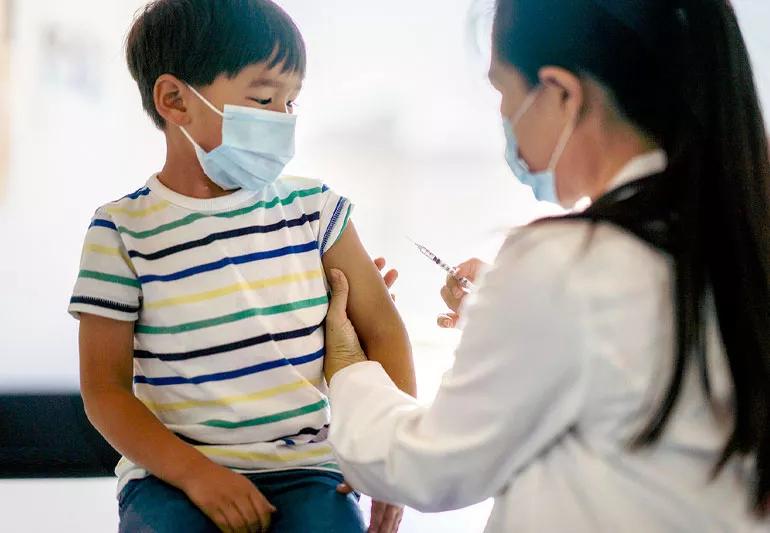Do's and don’ts for a smoother COVID-19 vaccination or pediatrician visit

When a child has a fear of needles, heading to an appointment for a COVID-19 vaccination or a well-check visit that involves a shot can quickly devolve into a tearful meltdown.
Advertisement
Cleveland Clinic is a non-profit academic medical center. Advertising on our site helps support our mission. We do not endorse non-Cleveland Clinic products or services. Policy
How can you make sure your child gets protected from the emerging COVID-19 virus or longer-standing diseases such as measles, chickenpox and tetanus without an additional dose of drama?
As a parent or caretaker, you have an important part to play. What you do before, during and after the appointment can calm their fears ― particularly regarding the COVID-19 vaccine now available to children age 5 and older.
Start by giving your child a heads up about the appointment and what to expect, says pediatric nurse practitioner Katie Creager, CNP: “Explain to them that they’re going to get a vaccine with a needle, and there’s going to be a small pinch, but it’s to keep them healthy.”
Here is some guidance for your child’s COVID-19 vaccination or doctor’s visit.
Advertisement
If you’re still not sure how to help your child cope, let your pediatrician or nurse know ahead of time that your child is afraid. Chances are they have some tips and tricks of their own. (They do this all the time, after all.)
Studies show that as many as two-thirds of children demonstrate a fear of needles. But there’s good news: Research also shows that the fear decreases the older kids get.
So hang in there ― this will be over soon, too.
Advertisement
Learn more about our editorial process.
Advertisement

Speaking, thinking or writing these affirming statements can help boost confidence, reduce anxiety and overcome self-doubt

Deep breathing, positive mantras and tackling negative thoughts can help get you out of your head and cool down your anxiety

Focusing on what you can see, feel, touch and hear can help you feel more present in the moment

Performance anxiety and stage fright are outsized stress responses that can creep up when you’re put on the spot

A healthy amount of anxiety can keep you safe from harm and motivate you to take action

Although different conditions, they can occur together or cause one another

If the thought of the gym sends you spiraling, do some prep work beforehand and bring a friend along for support

Stay merry and bright by knowing your triggers and journaling throughout your visit

If you’re feeling short of breath, sleep can be tough — propping yourself up or sleeping on your side may help

If you fear the unknown or find yourself needing reassurance often, you may identify with this attachment style

If you’re looking to boost your gut health, it’s better to get fiber from whole foods